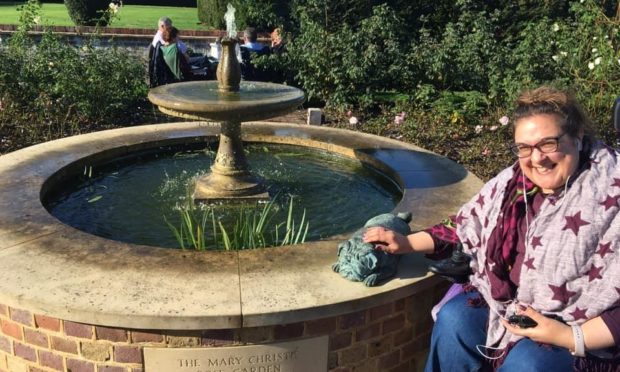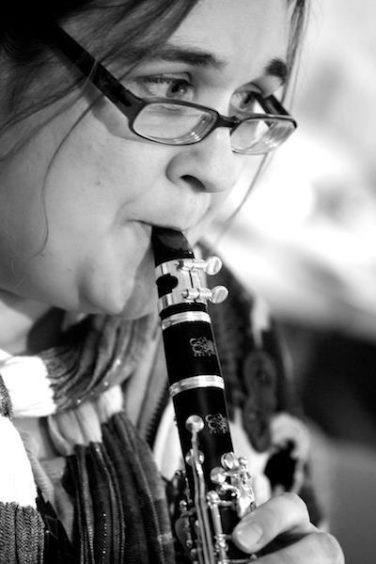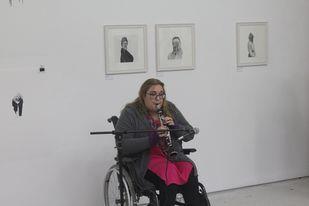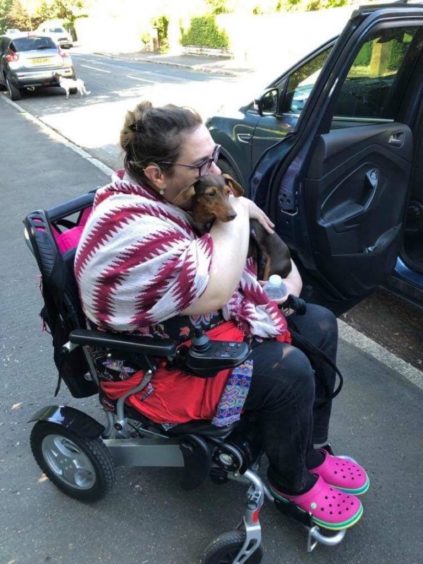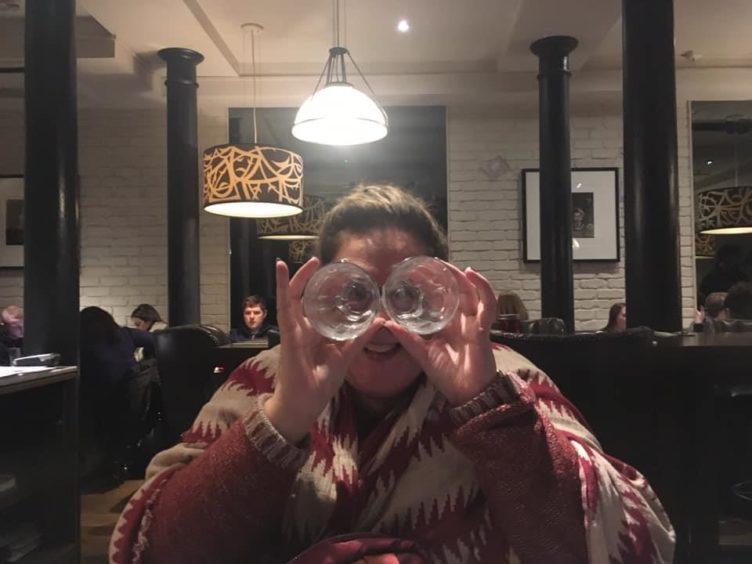What is it like to make music that you can’t hear?
Beethoven suffered when his hearing began to fade. But it seems some people have found a way of overcoming deafness in music.
Dame Evelyn Glennie, the world-renowned Scottish percussionist, is testament to this. And deaf composer Sonia Allori, originally from Inverness but now based in Aviemore, may just be following in her footsteps.
Sonia had been on a fairly traditional path for a classical musician, with teaching, chamber music and wedding performances taking up her time.
She has not been deaf all of her life, but a history of congenital deafness on the Scottish side of her mixed Italian heritage meant that she slowly started losing her hearing around eight years ago.
Now, Sonia identifies as being part of the deaf community which applies to people who have become deafened or hard of hearing in later life.
Like Glennie though, Sonia has found her own way of connecting to music without hearing and has not given up pursuing her passion.
Music is life
“I realised my passion for music fairly early on,” says Sonia.
“I have lived in the Highlands for most of my life. I have an Italian singing dad so my childhood is spattered with songs and music which paint vivid memories.”
Being part of a musical household, Sonia mentions that the transition to playing and writing her own music was “organic” from a young age.
She moved to the hubbub of city life during her university studies more than a decade ago. And though deafness hadn’t impacted her life by this point, another incident did.
Life-changing incident
In a blog post, Sonia describes how she woke up one morning unable to speak or move, but with her brain still intact.
“I now think of my life as being in two halves,” she tells us.
“There’s the bit where it was all systems go with the body functioning nicely, and then there’s the other bit where things were suddenly very different.”
Sonia later underwent bouts of physio and speech therapy. However, she also did this while studying for her PhD in Composition and training as a music therapist for music charity Nordoff Robbins, showing a determination for her chosen career path.
“I’ve been a full-time wheelie for a decade now,” says Sonia.
“Some aspects of life remain difficult today. Energy, capacity, not being able to be fully independent…
“Sometimes it gets you down, [but] I rally and regroup then I’m ready to do battle again.”
Composing with deafness
After her studies, Sonia began working on a two-year project with accessible arts organisation Drake Music, which saw her take lead on a re-interpretation of Vivaldi’s Four Seasons.
During this time, she saw her “confidence and skills grow” and this led to later opportunities including a composer residency at Edinburgh Film Festival and a performance slot at the Fringe.
But how did Sonia adapt to making music not only with the challenges of her disabilities, but with deafness too?
“I was going through a classic denial phase,” she says, “but then things just switched when I found I couldn’t hear the piano.
“I adapted and started to write more in my mind, planning and imagining the sounds in a kind of aural memory process.
“I continue to write and work things through in this way and have developed into writing mostly electro-acoustic music which mixes live acoustic recordings with music software.”
A sense of humour
With lockdown last year, however, Sonia was faced with a whole new set of challenges.
“I had gained momentum in my career and in life, I was travelling and touring a lot and then it just stopped,” she says.
Adapting to the new “online-ness” of everything initially made her feel “more cut off than ever”. But she later found solace through looking at the new normal with a sense of humour.
“I discovered auto-captioning software [for Zoom calls] which is not always accurate and sometimes intermittently hilarious.
“One of my favourite auto caption fails was when the text said that a friend had climbed Mount Snowdon and found Jesus!”
New projects
Most recently, Sonia took part in a virtual music-for-film writing camp with Highlands and Islands composers organised by XpoNorth.
She tells us that she “loved the sense of community” and was able to take part through a combination of auto captioning, live captioning and live audio description which made the experience accessible for her.
But Sonia also feels that more work can be done to make music more accessible for deaf and disabled musicians across Scotland.
The first in a series of 3 songs & blog posts for @disabilityarts . "What I hear". https://t.co/jWToq994RH
— Sonia Allori (@Violet_notes) February 15, 2021
“What’s missing is a clear pathway for young, deaf and disabled musicians coming through school and thinking ‘what’s next?’, ‘how can I make it in music?’.
“There are barriers to overcome and a limited number of opportunities, but you have to keep plugging away at it to gain momentum just as any other musician would.
“I’m lucky enough to be one of the arty folks who still has work coming through and am currently working on several composer commissions.
“I love being able to collaborate with different artists and artforms… I feel like I get to be different things in music.”
